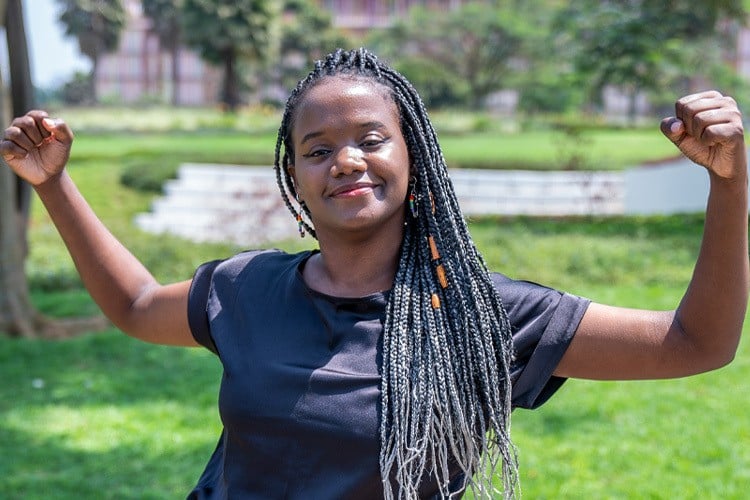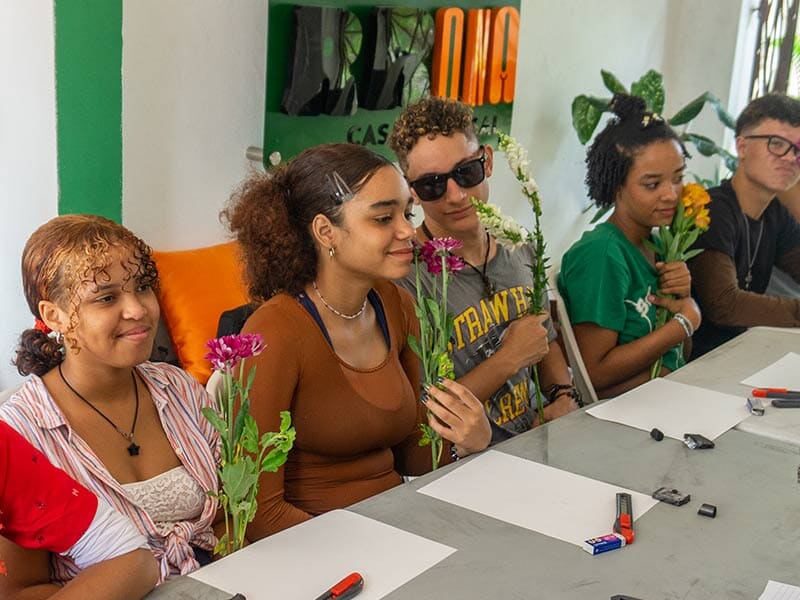
Activism is in Flor Ángel’s DNA.
The 28-year-old Dominican activist works with AJWS grantee Mujeres Sociopolíticas Mamá Tingó, a collective of social justice and community organizations fighting for equal rights for all women and girls. She comes from a long line of community organizers.
Growing up in the southern locality of Batey La Altagracia, she recalls her grandmother being “the godmother” of the community, serving as a midwife and healer, and opening up her home as a meeting place for community organizing. Her father fought for the rights of sugarcane workers.
“Activism has always been a part of my life,” she said. “As I got older, it was natural for me to get involved.”
When she was 11 years old, she and her sister formed a youth-led community group to support marches and petitions made by the local council for water and electricity. In its second year, the group conducted the first census of their neighborhood which helped strengthen the community’s advocacy in local government. Then at age 14, she formed a savings group for adolescents.
It was her family’s move to the city, however, that laid the foundation for her advocacy today. In Villa Mella, Flor Ángel came face to face with the racism felt by so many Dominicans of Haitian descent. People hurled slurs at her and her sister. Teachers ostracized them and made derogatory remarks. She recalled a school psychologist telling her that she would be prettier if she straightened her hair. And she was suspended for wearing her hair in braids and an afro.
“School should have been a safe place,” she said, “but we experienced a lot of violence there.”
The Dominican Republic remains hostile to Dominicans of Haitian descent (as well as Haitian migrant women). In 2013, the constitutional court stripped more than 200,000 people of their nationality, most of them with Haitian ancestry. Sexual exploitation of teenaged girls remains rampant. And the government has blocked undocumented Black and migrant women from accessing health care. There have even been reports of hospital raids in which women who have just given birth are hauled away to detention centers.
“It is risky being a Black girl in the Dominican Republic,” Flor Ángel said. “Black women and girls are the face of necropolitics here.”
Being a Black activist adds another layer to the oppression she fights against. She has been harassed and received numerous death threats for speaking out. Still, Flor Ángel remains resolute.
“We can’t make structural and social changes if we don’t put Black women and Black girls at the center,” she said. “It is mandatory that the State listens to our experiences and listens to our voices. That is what we are fighting for.”
Flor Ángel joined her sister in Rwanda in July for the Women Deliver conference. It was the first time the two had traveled outside their home country, and their first time in Africa.
“This has always been a dream of mine,” she said, adding that their parents taught them about the history of colonization, slavery and resistance. “Being here and walking on the same land as my ancestors fills me with an emotion that is hard to describe. Knowing that there are centuries of resistance here and that they’re still standing fills me with inspiration — and that’s something I will take with me back home.”





